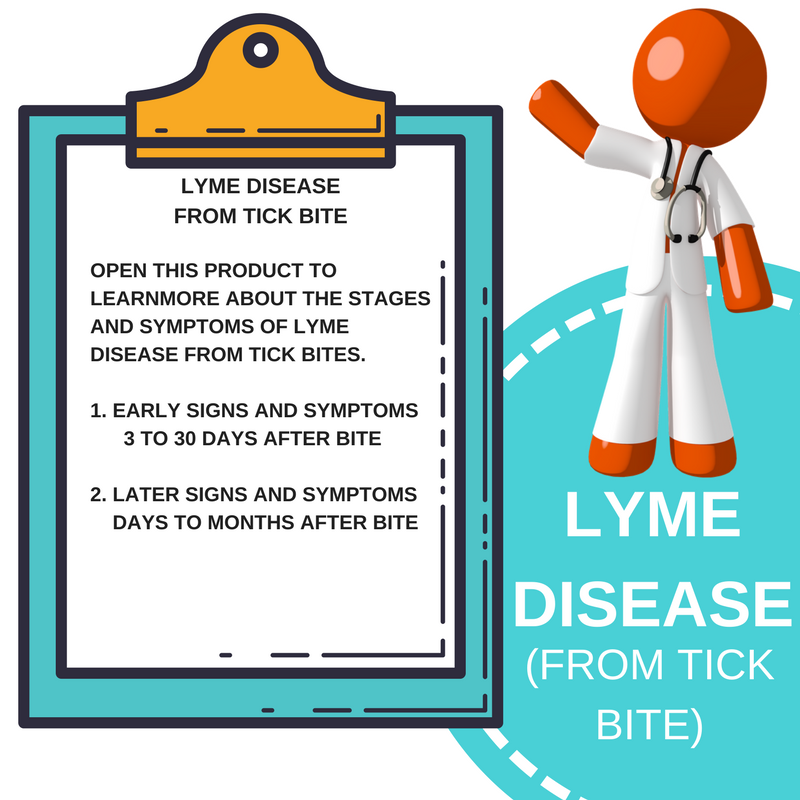LYME DISEASE IGG/IGM WBA
Early Signs and Symptoms (3 to 30 days after tick bite)
- Fever, chills, headache, fatigue, muscle and joint aches, and swollen lymph nodes
- Erythema migrans (EM) rash:
- Occurs in approximately 70 to 80 percent of infected persons
- Begins at the site of a tick bite after a delay of 3 to 30 days (average is about 7 days)
- Expands gradually over a period of days reaching up to 12 inches or more (30 cm) across
- May feel warm to the touch but is rarely itchy or painful
- Sometimes clears as it enlarges, resulting in a target or “bull’s-eye” appearance
- May appear on any area of the body
- See examples of EM rashes
Later Signs and Symptoms (days to months after tick bite)
- Severe headaches and neck stiffness
- Additional EM rashes on other areas of the body
- Arthritis with severe joint pain and swelling, particularly the knees and other large joints.
- Facial palsy (loss of muscle tone or droop on one or both sides of the face)
- Intermittent pain in tendons, muscles, joints, and bones
- Heart palpitations or an irregular heart beat (Lyme carditis)
- Episodes of dizziness or shortness of breath
- Inflammation of the brain and spinal cord
- Nerve pain
- Shooting pains, numbness, or tingling in the hands or feet
- Problems with short-term memory
Diagnosing Lyme Disease
Signs and Symptoms
History of Possible Exposure to Infected Blacklegged Ticks
Laboratory Blood tests are quite helpful if used correctly and performed with validated methods. Our Lyme Disease testing comes with confirmation and validation. Laboratory tests are not recommended for patients who do not have symptoms typical of Lyme disease. Just as it is important to correctly diagnose Lyme disease when a patient has it, it is important to avoid misdiagnosis and treatment of Lyme Disease when the true cause of the illness is something else.
Notes
- Fever and other general symptoms may occur in the absence of rash.
- A small bump or redness at the site of a tick bite that occurs immediately and resembles a mosquito bite, is common. This irritation generally goes away in 1-2 days and is not a sign of Lyme disease.
- A rash with a very similar appearance to EM occurs with Southern Tick-associated Rash Illness (STARI), but is not Lyme disease
Ticks can spread other organisms that may cause a different type of rash.
Test Prep: None Indicated
________________________________________________________________________________________
Content source:
Centers for Disease Control and Prevention
National Center for Emerging and Zoonotic Infectious Diseases (NCEZID)
Division of Vector-Borne Diseases (DVBD)


